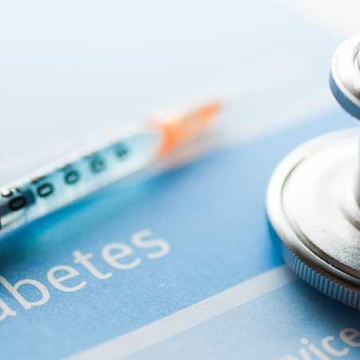
- Lifestyle changes focused mainly on diet and exercise are usually recommended to people with type 2 diabetes.
- These two primarily help with losing weight, increasing energy levels and managing blood sugar levels.
- According to the American Diabetes Association, a person who just received a type 2 diabetes diagnosis can start changing their habits such as diet and exercise within 3 to 5 months before any medications.
For people newly diagnosed with type 2 diabetes, it’s important to know that you can still live a normal and healthy life.
Lifestyle changes are often advised to help manage diabetes. Diet and exercise, the two of most essential components of lifestyle modification, can help with weight loss, boost energy levels and effectively control your blood sugar levels.
A position statement from the American Diabetes Association reads: “At diagnosis, highly motivated patients with HgbA1c already near the target (e.g., <7.5%) could be given the opportunity to engage in lifestyle changes for a period of three to six months before embarking on pharmacotherapy (usually metformin).”
Meaning, if you have been recently diagnosed with diabetes with an almost normal A1c at diagnosis, then 7.5% of your initial treatments can solely rely on diet and physical activity for 3 to 5 months before starting any medication.
Here are the lifestyle tweaks you can do to jumpstart your diabetes management.
Get Patient-Centered Care

Because we are individuals with different wants and needs, it is important to receive diabetes advice on self-management from a licensed professional like a certified diabetes educator to help develop a plan that works best for you.
Chances are, there may be a great deal of conflicting information telling you what to eat and what not to eat. To get you on track, get educated on how to create your own healthy diet and exercise routine.
Craft the best diet

Having a healthy and sustainable way of eating is crucial for weight loss and diabetes control. And the best way to do this is to speak to a certified diabetes educator or registered dietitian who can help you create either a low in carbohydrate, modified carbohydrate, or a consistent carbohydrate diet.
A diet rich in carbs is important because these foods have the highest impact on blood sugars. However, you as a diabetic, are not totally banned from eating carbs, rather, just choose the right kinds of carbohydrates in the right quantities. Because in lowering your carb intake, you are easing stress from your pancreas, increasing energy levels, shedding pounds and lowering your blood sugars.
Following a low-carb breakfast, high-fiber lunch and a balanced carbohydrate controlled dinner, seem to work for most people. To try, use a smaller plate where ½ of the plate should be filled with non- starchy vegetables (salad, broccoli, spinach, asparagus, etc.), ¼ for lean protein (white meat chicken, turkey, fish, lean beef) while the other ¼ for a complex carbohydrate like sweet potato, beans, quinoa, barley, bulgar, etc.
Move more

It doesn’t necessarily mean going to the gym. It just means doing more movements or any physical activities. More exercise means better metabolism leading to burning more calories.
For motivation, try to make exercise fun. As recommended, do as many physical movements as you can and aim for 150 minutes of moderate exercise per week including aerobic, resistance, and flexibility training.
Though the hardest part is getting yourself to start, once you do, it’s so worth the effort.
Target on Moderate Weight Loss

Excess weight is one of the most common reasons people develop diabetes. With extra weight, your body cannot move sugar to your cells to use for energy due to the cells becoming insulin-resistant. As a result, the sugar remains in the bloodstream.
Losing about 5% to 10% of your body weight can already lower blood sugars.
Check Your Sugar Levels

If you’re newly diagnosed and not yet taking any medication, you should still test your blood sugar. Aim to test a few times a week. Use your readings as a basis for adjusting your carb intake and increasing exercise. Blood sugar testing can serve as an eye opener and a motivating tool to improve your diet and get moving.
Source: Very Well Health
